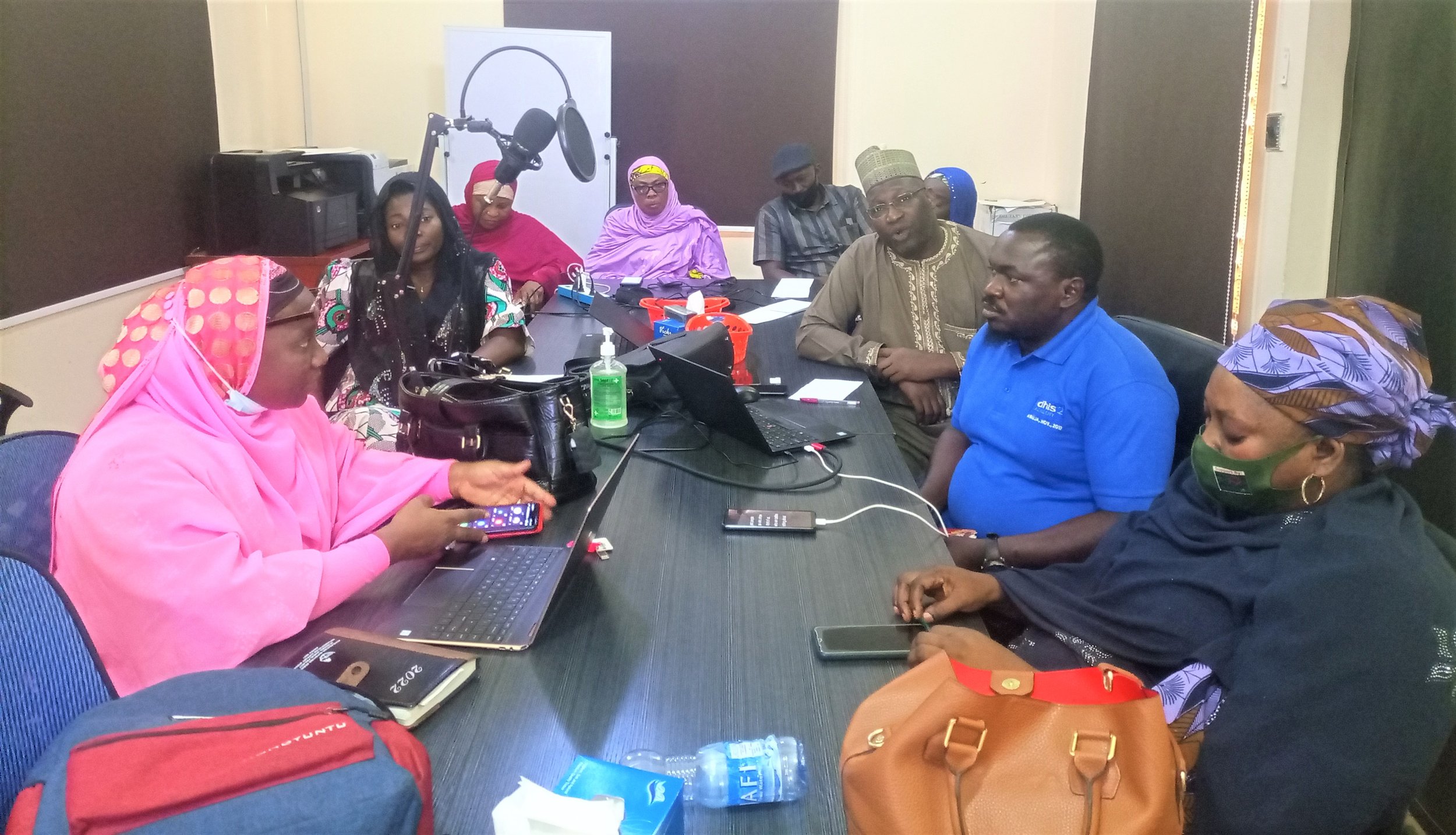While cost-effective interventions exist, utilization of nutrition services and maternal care remain drastically low.
The roots of poor nutrition and maternal health lie in human behavior. Improvements in nutrition and maternal health outcomes are not possible without broad widespread changes in the everyday behaviors of people and institutions that influence them. There is a significant lack of comprehensive understanding of the various structural and sociocultural issues that pose a challenge in boosting nutritional and maternal status in Nigeria. Exploring the complex network of intrapersonal and community factors influencing the utilization of these services will aid in the development of targeted interventions to support this population.
Stakeholders who attended the KAPs study validation workshop physically
Changing behaviors for nutrition and adolescent health requires a variety of approaches. -The lack of adeptness or understanding contributes to negative nutrition behaviors. People also practice certain behaviors when they believe them. Myths, misinterpretation, cultural practices, and other drawbacks including cost, location, and availability are major quagmires that can stand in the way of change or desired behaviors.
eHA-ANRIN consortium via the Accelerating Nutrition Results in Nigeria (project) in Kaduna state is providing basic nutrition, reproductive and adolescent health counseling services in 12 LGAs in Kaduna state. In addition to this, we are conducting a Knowledge, Attitudes, and Practices ((KAP) study around nutritional behavior and adolescent health amongst women and children under 5 years of age in Kaduna State. This formative study aims to develop a multidisciplinary and comprehensive approach that would positively influence nutritional and birth spacing behavior within our target groups.
The motivation for this approach is to allow for the evaluation of outcomes towards understanding how eHA-ANRIN can increase the utilization of quality, cost-effective nutritional services for the target group. Specifically, these insights will support the development of a behavior change communication strategy as well as the development of information, education, and communication (IEC) materials by the consortium partners.
A group photo of stakeholders after the session in Kaduna State.
Considering that behavior change approaches are essential to foundational cross-cutting change strategies for the achievement of program results. eHAANRiN hopes to use a balanced approach in its programming with supply and demand-side interventions. Efforts will be made to ensure the study is robust: key influencers of nutritional and reproductive health behaviors across the various segments of the state will be part of the study. We will also work very closely with our stakeholders; the Kaduna state government, all the relevant agencies, partners, implementers amongst others in the state to ensure that their insights are also captured. BUSARA, a member of the eHA - ANRIN consortium has strong experience delivering similar studies and currently leads the delivery.
Through this study, the consortium aims to;
increase access to nutrition and birth-spacing commodities and tailored counseling for the target population, particularly in hard-to-reach (HTR) areas
generate demand for commodities and counseling by deploying behavioral science techniques;
and integrate a data-led approach to improve the delivery of essential products and services.
In the aftermath, the KAPs study plans to pinpoint the motivation, latitude, and challenges that influence the target group’s behavior, define behavior change objectives, and the mix of intervention and behavior change communication products and campaigns to help our target group to live a healthy and fulfilled life.


